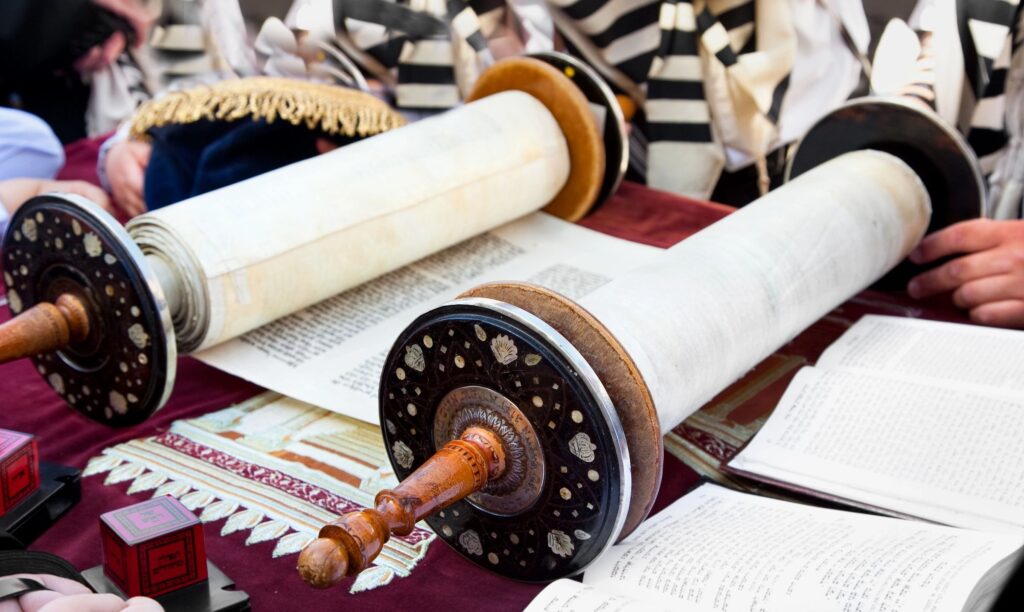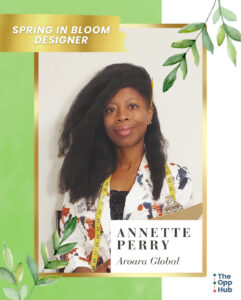
By: Pamela Stern
Simchat Torah (Simchas Torah) is a Jewish holiday that celebrates and marks the conclusion of the annual cycle of public Torah readings, and the beginning of a new cycle. Simchat Torah is a component of the Jewish Holiday of Shemini Atzeret which follows immediately after the festival of Sukkot (the seven-day holiday) in the month of Tishrei (occurring in September or October on the calendar).
Simchat Torah is Hebrew for “the joy of Torah.” This jubiliation is often accompanied by dancing and singing, to mark the completion of the annual reading of this section of the Bible.
Simchat Torah is celebrated by taking all the Torah scrolls out of the ark in synagogue and spending the evening dancing, singing, and rejoicing. The scrolls are carried around the sanctuary in seven circles called hakafot. Though only seven circles are required, the dancing and celebrating usually goes on much longer.
The main celebrations of Simchat Torah take place in the synagogue during evening and morning services. In many Orthodox and Conservative congregations, this is the only time of year when the Torah scrolls are taken out of the ark and read. Each time the ark is opened, the worshippers leave their seats to dance and sing with the Torah scrolls in a joyous merriment. Congregants may also sing other, popular songs during the dancing. Children often receive flags, candies and other treats.
In 1996, the Israel Postal Authority issued a postage stamp to honor the holiday.
What to say on Simchat Torah:
You may say chag sameach (khahg sah-MAY-akh), which literally means ‘happy holiday’ or you could say gut yontiff (goot YUHN-tiff), a yiddishized version of the Hebrew phrase yom tov meaning ‘good day’ and referring to any major holiday on which work is traditionally forbidden.
How to Celebrate Simchat Torah:
1-Prepare a festive feast- The two days of Shemini Atzeret and Simchat Torah contain at least four festive meals, so make sure to prepare accordingly. In addition to wine (or grape juice), challah and other delicacies, note that some have a tradition to serve stuffed cabbage, known in Yiddish as kholoptches.
2-Craft Flags- A classic element of the Simchat Torah celebration is for children to join the festive dancing in temple while waving flags.
3-Prepare Your Favorite Drinks- It is customary (but not at all mandatory) for adults to responsibly enjoy a little lechaim before (and during) the Simchat Torah services. For kids (and adults who cannot drink), perhaps get some sparkling grape juice or another treat.
4-Light Festive Candles- Like Shabbat and other holidays, the two nights of Shemini Atzeret and Simchat Torah are celebrated in the warm glow of holiday candles (married women light at least two, and single girls light one). If you are in a male-only household, one of the guys should light candles for everyone. (Note that on the second night candles must only be lit after night has fallen and from a pre-existing flame.)
5-Pray at Home- Simchat Torah prayers follow the standard holiday procedure.
6- Dance ‘Round and ‘Round With a Chumash- On both the evening and morning of Simchat Torah it is customary to perform Hakafot (“circles”), which involve reciting a medley of verses from the Torah.
As you dance your sacred circles, know that you are bringing the sublime Simchat Torah energy directly into your home.
7-Read the Torah Reading- Chances are that you do not have a Torah scroll at home. However, it is still ideal to read through the Torah reading of the day.
8-Sing and Dance- When we sing and dance in our homes this year, our joy will pierce through the walls and miles that may separate us from our fellow Jews. So get ready to put on your dancing shoes, and belt out those Simchat melodies.
9-Enjoy Festive Meals- Simchat Torah marks the end of a long season of holiday meals that began more than three weeks prior with apples and honey on Rosh Hashanah eve.
10-Get a head Start on the Year- Simchat Torah starts the annual Torah reading cycle. It is customary to read one part of the weekly portion each day, and finishing on Shabbat.
Chag Sameach and Gut Yontiff!



